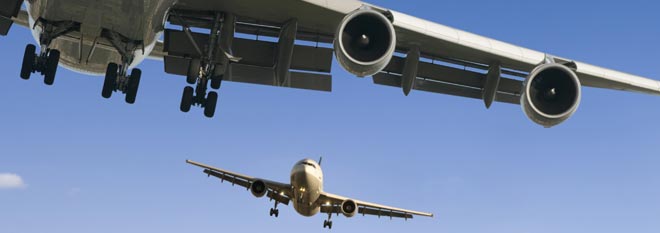Applications of agent technology
Southampton research into agent-based computing helped spur the GB Sailing Team to Olympic success in 2012 and is having a significant impact on the defence, aerospace and civil contingency industries. The work is also being used in the environmental monitoring of climate change.

Research challenge
Agent-based computing is a new way of building complex socio-technical systems that are composed of many interacting intelligent and autonomous components. Southampton’s Agents, Interaction and Complexity Group (AICG) undertakes world-leading research into the science and engineering of such systems.
In more detail, agent-based systems underpin many of the most pressing challenges facing society today such as engineering resilient and sustainable smart infrastructure, restructuring healthcare systems to cope with demographic change, and anticipating and mitigating the impacts of climate change. In order to meet these challenges, complex systems comprising many interacting agents need to be built and analysed.
Context
Agent technology is playing an increasingly significant role in today’s society. From big businesses to individual homes, many of the applications we use every day rely on interacting intelligent and autonomous agents, and this dependence is set to rise further as systems become even more complex.
Our solution
Fundamental research has been taking place at Southampton through a number of EPSRC projects. The work has enabled a number of autonomous agents to flexibly interact with one another in complex environments in order to achieve individual and collective goals, however, these actions need to be coordinated if they are to be effective.
Over the past decade members of the AICG, including professors Nick Jennings and Alex Rogers, and lecturers Sarvapali Ramchurn, Enrico Gerding and Maria Polukarov, have developed a suite of approaches and have looked at both the theoretical properties of these interactions and how the algorithms can be developed to facilitate computationally effective interworking.
What was the impact?
New coordination and negotiation algorithms developed by the AICG are having a major impact on the economy and the environment.
The team’s research has directly led to the creation of two independent start-up companies – Aerogility and variab.ly.
Aerogility produces an agent-based business decision support system that is targeted at global aerospace and defence organisations. Southampton Professor Nick Jennings worked with Aerogility’s product development team to refine market-based negotiation algorithms that could efficiently and effectively optimise aircraft scheduling and maintenance.
variab.ly provides negotiation algorithms developed by the Southampton team for electronic marketplaces. Nick worked with variab.ly’s development team to refine and scale the fundamental algorithms to enable online retailers to dynamically set prices for products in response to customer online bids.
AICG research has also led to improved performance in business including BAE Systems, the Ministry of Defence and Hampshire County Council.
One of AICG’s prediction algorithms was deployed in a BAE prototype tool that provided the GB Sailing Team with greater accuracy of weather pattern forecasting in Weymouth Bay and Portland Harbour helping them to achieve success in the 2012 Olympics.
Algorithms developed at Southampton have also been helping British Antarctic Survey scientists monitor climate change by coordinating information from sensor networks to record temperature, pressure and orientation changes in the Briksdalsbreen glacier, in Norway.

Find out more
Talk to our research team and find out more about this work. Professor Nick Jennings, of the Agents, Interaction and Complexity group led the research on this project.